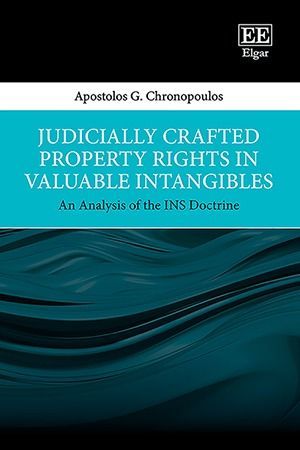
In this incisive book, Apostolos G. Chronopoulos examines the doctrine of misappropriation offering a comprehensive and critical review of the relevant case law that takes into consideration the rich academic commentary on the topic.
In the INS case, the Supreme Court held that a news agency may enjoin third parties from copying its news stories while these are still “fresh”. Chronopoulos seeks to clarify the heavily debated doctrinal issues that have since arisen as to: the exact legal nature of the recognized entitlement; whether the Supreme Court sought to establish a principle of general application; and the extent to which state claims to protect valuable intangibles under a common-law theory of liability survive federal pre-emption. Chronopoulos argues that the protection offered at state level should not be confined to the availability of a narrow tort of unfair competition protecting highly time-sensitive subject matter against parasitic appropriation by direct competitors; rather, the application of the misappropriation doctrine is bound to generate judge-made property rights in intangibles with time value.
This book is an indispensable resource for academics who would have an interest in re-exploring and revisiting the topic from a doctrinal perspective. The book’s theoretical groundwork can also be relied upon by practitioners for the purpose of building legal arguments.